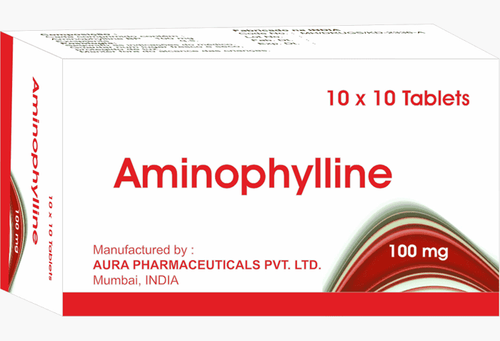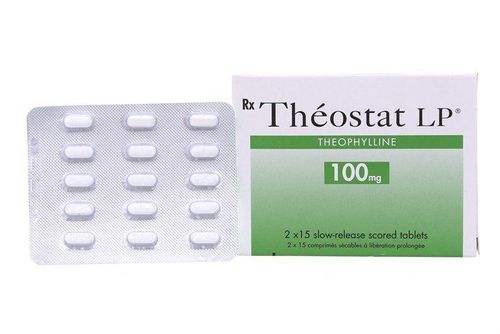This is an automatically translated article.
Broncal drugs are often prescribed by doctors to treat respiratory disorders, such as bronchial asthma, bronchitis, ... To ensure that Broncal is safe and effective as desired. Patients need to strictly follow the doctor's recommendations about the dose and frequency of using the drug.
1. What is Broncal?
Broncal belongs to the group of drugs that act on the respiratory tract, used to treat the symptoms of respiratory disorders, such as shortness of breath or cough with phlegm due to acute / chronic bronchitis, bronchiectasis / asthma manage . Broncal medicine is manufactured by OPV Pharmaceutical Co., Ltd - Vietnam, the main dosage form is oral suspension with packing specification of 1 bottle of 60ml.
So is Broncal good? In a bottle of Broncal, there are 2 main ingredients, Carbocisteine and Salbutamol, and other excipients just enough 60ml. The main active ingredient Carbocysteine in the drug has the ability to thin sputum through the mechanism of severing the crosslinking bridge between disulfures and the peptide chains of mucin - a factor that increases the viscosity of secretions.
Thanks to the above mechanism, the active ingredient Carbocysteine in Broncal medicine can effectively reduce the viscosity of mucus, and at the same time dilute the consistency of sputum and make it easier for patients to expel sputum.
2. Indications and contraindications to the use of Broncal
2.1. Indications for the use of Broncal drugs Broncal drugs are often prescribed by doctors to relieve and treat symptoms of cough with phlegm accompanied by shortness of breath for patients with the following respiratory disorders:
Acute bronchitis count. Chronic bronchitis. Asthma. Bronchiectasis. 2.2. Contraindications to the use of Broncal Do not use Broncal for the following subjects:
Patients with a history of hypersensitivity or allergy to active ingredients such as Carbocysteine, Salbutamol or any of the active ingredients in the drug. Relative contraindications for pregnant women (use Broncal when absolutely necessary).
3. Dosage and recommendations for the correct use of Broncal drugs
3.1. Dosage of Broncal drug Broncal dose is determined specifically for each patient:
Dose for children from 7 to 12 years old: Take 2 teaspoons of Broncal suspension, equivalent to 10ml x 3-4 times / day. Dose for children from 2 to 6 years old: Take 1 teaspoon of Broncal suspension, 5ml x 3 - 4 times a day. Dosage for adults: Take according to the specific prescription of a specialist or according to the dosage prescribed in the instruction sheet. 3.2. Instructions on how to use Broncal Medication How to use the medicine will be based on the dosage form of that medicine. Because Broncal is prepared in the form of a suspension, the drug will be taken orally. Before taking Broncal, patients should carefully consult their doctor's advice on how to use the drug properly and achieve high efficiency. In addition, patients also need to follow the recommended doses, avoid self-medication or adjust the dose without approval.
3.3. Treatment of Broncal Overdose When taking an overdose of Broncal, a patient may experience a number of symptoms related to overstimulation of beta receptors, including sore throat, cramps, and confusion. heart rate, tachycardia, headache, increase/decrease in blood pressure, tremor, restlessness, nervousness, dry mouth, weakness, dizziness, insomnia, nausea or irritability, even hypokalemia. If the above symptoms of overdose occur, the patient should immediately notify the doctor for appropriate treatment. Usually the management of a Broncal overdose will involve discontinuing the drug and focusing on treating the symptoms.
4. Possible side effects when taking Broncal
When using Broncal to treat the symptoms of some respiratory disorders, patients may experience some of the following side effects:
Common side effects: Trembling or feeling cold restlessness, cramps, heart palpitations, headache, insomnia, nervousness, nausea, dizziness or weakness. Rare side effects: Angioedema, rash, urticaria or oropharyngeal edema. Some patients also report cardiovascular changes, including blood pressure, pulse, or electrocardiogram. In general, the side effects of Broncal are mild, transient, and do not require complete discontinuation of drug therapy. However, if one of the symptoms mentioned above appears, the patient should still notify the doctor for early treatment.
5. What should be noted during the use of Broncal?
5.1. Things to be careful when treating with Broncal Drugs During the process of using Broncal drugs, users need to be careful about a few things below:
Always take the medicine as recommended by a qualified doctor, avoid taking an overdose or Make up for a double dose if you miss a dose. Broncal should be used with caution in patients with cardiovascular problems, typically arrhythmias, coronary insufficiency, and hypertension. Patients with epilepsy, diabetes, or hyperthyroidism should also exercise caution when treating respiratory disorders with Broncal. Use caution when administering Broncal to patients with sympathomimetic amine reactions. Although there are no data to show that the use of Broncal can cause birth defects, doctors do not recommend this drug for pregnant women. If necessary, the mother should only take the drug during the first 3 months of pregnancy and strictly follow the dosage recommended by the specialist. There is no specific information on whether Broncal is excreted in human milk. Several observational studies in animals have shown that salbutamol has the potential to cause tumorigenesis, therefore nursing mothers should weigh the decision to use the drug or discontinue nursing based on these evaluations. evaluate the benefits and risks that Broncal brings. The safety and efficacy of Broncal in children under 2 years of age have not been specifically studied, so it should be avoided in children of this age without a doctor's approval. During the treatment of respiratory disorders with Broncal, the patient's blood pressure and pulse should be regularly monitored. Broncal should be used with caution in patients taking Halothane or MAOIs. Women with diabetes also need to be careful during treatment with Broncal. 5.2. Interactions of Broncal with other drugs The following are drugs with a potential for interactions when used in combination with Broncal:
Other sympathomimetic drugs when combined with Broncal may increase the risk of toxicity harmful to the heart. Monoamine oxidase inhibitors. Tricyclic antidepressants. Beta receptor blocker. The article has provided information on what Broncal is, dosage and precautions for use. To ensure safety for your health and maximize the effectiveness of your treatment, you need to take Broncal exactly as directed by your doctor.
Please dial HOTLINE for more information or register for an appointment HERE. Download MyVinmec app to make appointments faster and to manage your bookings easily.













